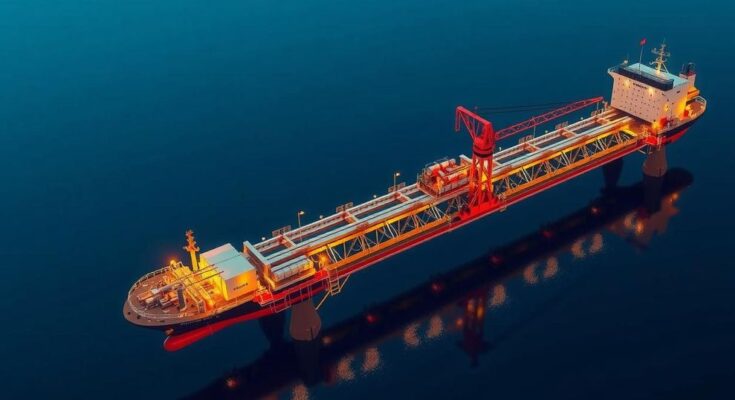Brazil’s Grupo Matrix Energia and Argentina’s TotalEnergies have partnered with Bolivia’s YPFB to transport natural gas from Argentina’s Vaca Muerta formation. The agreement, signed on November 22, 2023, uses Bolivia’s infrastructure to enhance gas supplies to Brazil. This initiative is part of broader efforts as Argentina develops its pipeline networks and commercial frameworks to increase gas exports amidst Bolivia’s declining production. YPF is also merging its LNG project to boost production.
Brazil’s Grupo Matrix Energia and Argentina’s TotalEnergies have finalized an agreement with YPFB, Bolivia’s state-owned energy company, to facilitate the transportation of natural gas from Argentina’s Vaca Muerta shale formation. This strategic partnership was established on November 22 and seeks to optimize regional energy dynamics by utilizing Bolivia’s transport infrastructure. The collaboration is expected to augment Argentine gas supplies to the Brazilian market, significantly contributing to energy integration in South America.
YPFB remarked that the deal is instrumental in streamlining the flow of natural gas, capitalizing on its 1,000-kilometer pipeline network that connects Argentina and Brazil. Given Bolivia’s declining gas export capacity, this partnership allows Argentina, possessing the world’s second-largest shale gas reserves, to enhance its role as a gas exporter. Argentina is currently investing in infrastructure and commercial frameworks essential for the establishment of effective tariff negotiations.
Furthermore, TotalEnergies and Grupo Matrix Energia have entered into a purchase and sales contract as part of the agreement. YPFB additionally disclosed that TotalEnergies secured two permits for exporting natural gas sourced from the Austral and Neuquen Basins to Brazil. In parallel developments, YPF is merging its liquefied natural gas (LNG) initiative with a project from Pan American Energy Group and Golar LNG, which aims to bolster production and enhance exports from the Vaca Muerta region, solidifying Argentina’s significance within the global LNG landscape.
YPF has ambitions to finance $2 billion for its Vaca Muerta Sur pipeline project, intending to transport an extra 390,000 barrels of oil per day to a coastal export terminal in Rio Negro province by the second quarter of 2025. The project is spearheaded by Vaca Muerta Oil Sur, a YPF-controlled entity, indicating Argentina’s firm commitment to developing its energy export capabilities.
The recent agreement between Brazil, Argentina, and YPFB marks a significant development in the energy sector of South America. With Argentina positioning itself as a prominent exporter of natural gas due to its vast shale gas reserves in the Vaca Muerta formation, partnerships with neighboring countries, particularly Brazil, are pivotal. Bolivia’s role as a transit hub is crucial, especially as the country has seen a decline in its gas exports, necessitating alternative supply routes.
In conclusion, the agreement between Brazil’s Grupo Matrix Energia, Argentina’s TotalEnergies, and Bolivia’s YPFB represents a strategic move to enhance regional energy integration while addressing shifting supply dynamics. As Argentina ramps up its gas export capabilities and Bolivia seeks to utilize its infrastructure for gas transportation, this collaboration could significantly reshape the energy landscape in South America. Moreover, the concurrent developments in LNG projects further underscore the commitment of these countries to bolster their positions in the global energy market.
Original Source: www.offshore-technology.com




